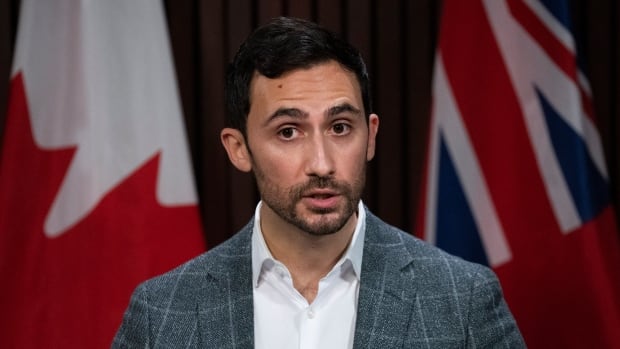
The Ontario government is expected to pass legislation Thursday that will impose a contract on 55,000 education workers ahead of a planned walkout.
The Canadian Union of Public Employees (CUPE) has said the workers will walk off the job Friday and beyond despite the legislation that would make a strike illegal.
Early childhood educators, educational assistants and custodians are among those taking part in the strike action.
The Ontario Public Service Employees Union (OPSEU) announced today that its 8,000 education workers will also be off the job Friday in solidarity with their CUPE counterparts.
Their largest contingent of members is in the Peel District School Board and the York Region District School Board, which have both already said the CUPE strike would close schools.
OPSEU president JP Hornick said legislation the Ontario government is expected to pass today that would impose a contract on CUPE education workers and ban them from striking is undemocratic.
“Bill 28 isn’t just an attack on education workers’ collective bargaining rights, it is an attack on all workers’ rights,” Hornick said in a statement.
The Toronto District School Board, the province’s largest board, says it will keep schools closed for the duration of the strike because it can’t ensure schools would remain safe for students. Many other school boards across the province plan to close schools or move to remote learning for Friday.
CUPE says the workers plan to be on strike beyond Friday unless a deal is reached.
Education Minister Stephen Lecce says he won’t negotiate further unless the union cancels its strike. He says the government “has no choice” but to proceed with its legislation because of CUPE’s strike threat.
The province’s bill includes a four-year contract and would ban strikes, with steep fines if workers do not comply.
The government originally offered raises of two per cent a year for workers making less than $40,000 and 1.25 per cent for all others, but says the new, imposed four-year deal would give 2.5 per cent annual raises to workers making less than $43,000 and 1.5 per cent raises for all others.
CUPE has said that framing is not accurate because the raises actually depend on hourly wages and pay scales, so the majority of workers who earn less than $43,000 in a year wouldn’t get 2.5 per cent.
CUPE has said its workers, which make on average $39,000 a year, are generally the lowest paid in schools and have been seeking annual salary increases of 11.7 per cent.